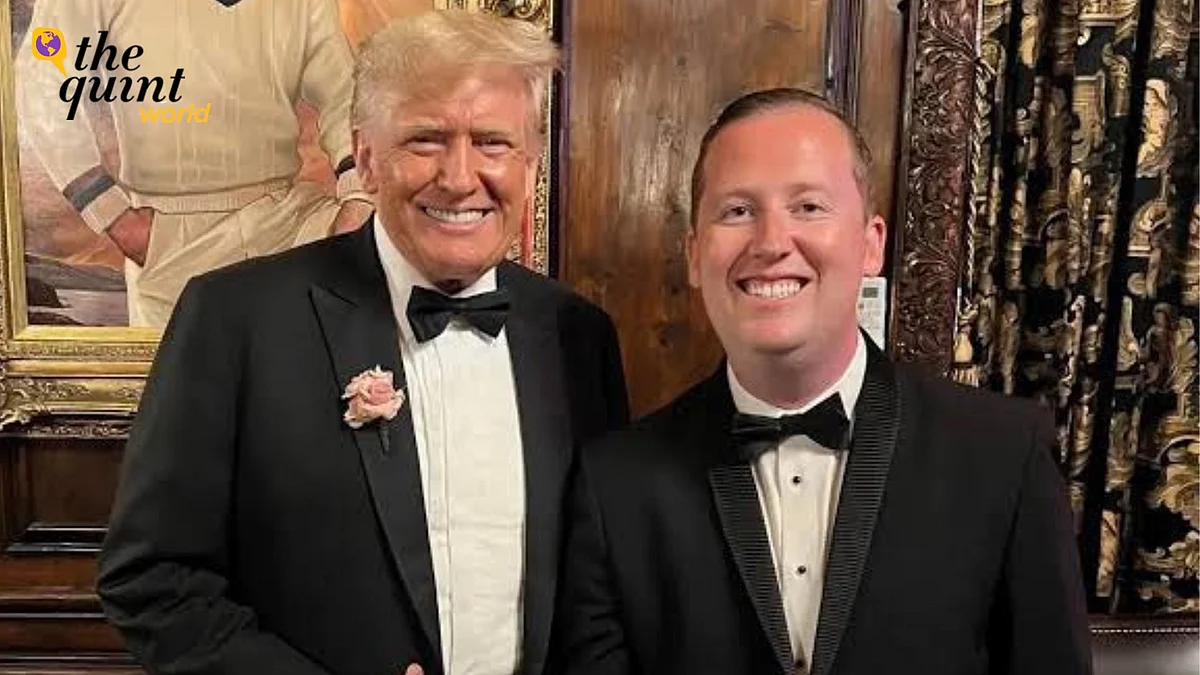Politics
Trump’s Appointment of Sergio Gor Sparks Controversy in India

The dual role of Sergio Gor as the next US Ambassador to India and Special Envoy on South and Central Asian Affairs, appointed by Donald Trump, has ignited controversy and debate in New Delhi. Critics express concern that Gor’s responsibilities could lead to US interference in India’s domestic matters, particularly regarding tensions with Pakistan. Former Foreign Secretary Kanwal Sibal highlighted the potential implications of Gor’s dual position, stating, “This dual role for the nominee raises questions.”
The appointment has drawn mixed reactions. Some view Gor’s close relationship with Trump as a potential advantage for India, especially given the current state of India-US ties, which have faced challenges, including the imposition of tariffs on Indian goods. Harsh V Pant, a professor at King’s College London, noted that ambassadors with direct access to the president can be influential during difficult diplomatic periods. Gor, who has been associated with Trump for years, has been involved in various political roles, including vetting political appointees and co-founding a publishing house with Trump Jr.
Despite this, there are significant concerns regarding the implications of Gor’s dual role. Navtej Sarna, a former Indian Ambassador to the US, pointed out that while having the president’s ear is crucial, the content of the conversations is equally vital. He warned that Gor’s access could either advance or compromise the India-US relationship.
Critics, including former diplomats, have expressed alarm over Gor’s appointment as both ambassador and special envoy. Vivek Katju, a former Secretary at India’s Ministry of External Affairs, described the dual role as “unprecedented, unfortunate, and disturbing.” The Bureau of South and Central Asian Affairs oversees relations not only with India but also with Pakistan, Nepal, and several Central Asian countries, raising fears of a US-led mediation in regional disputes.
Historically, attempts to “hyphenate” India and Pakistan in diplomatic contexts have met resistance. During the Obama administration, a proposal to appoint Richard Holbrooke as a special envoy for the region faced pushback from Indian officials, who viewed it as potential interference.
Gor’s appointment comes at a particularly sensitive time, as President Trump has publicly claimed to have mediated a ceasefire between India and Pakistan multiple times since May 2023. The Indian Ministry of External Affairs has refuted these claims, emphasizing that any cessation of hostilities resulted from military-level talks. Additionally, Trump’s engagements with Pakistan’s military leadership have further strained relations with India.
Sibal remarked, “India will have concerns about this intrusive US role in the region,” suggesting that Gor’s close ties to Trump might not yield the desired diplomatic outcomes. The emphasis on Gor implementing Trump’s agenda raises alarms about the US not fully acknowledging India’s regional significance.
Notably, Trump did not mention India-US relations during his announcement of Gor’s appointment, instead focusing on Gor’s personal loyalty and capability. This omission has drawn criticism from former diplomats who question the strategic implications of such a statement.
The Indian government has remained largely silent on Gor’s appointment. Randhir Jaiswal, the MEA’s spokesperson, has not commented on the dual role, and External Affairs Minister S. Jaishankar declined to elaborate on the matter when questioned.
While host nations can reject proposed ambassadors, such a move regarding Gor is considered unlikely. The nuances of his dual role complicate the issue, as the Vienna Convention on Diplomatic Relations does not explicitly address the rejection of additional ambassadorial responsibilities.
Gor, originally from Tashkent, became a naturalized US citizen and has held several influential positions within the Republican Party. His influence is underscored by his role in persuading Trump to withdraw a nomination for NASA leadership, demonstrating his significant sway within the administration.
Gor still requires confirmation from the US Senate before taking up his post in India, which means he may not arrive until late 2025. He will succeed Eric Garcetti, who has left a vacancy in the ambassadorial role since January 2024. Analysts suggest that while the ambassadorship necessitates Senate confirmation, Gor could assume his role as special envoy pending that approval, potentially complicating the diplomatic landscape further.
As the situation evolves, the implications of Gor’s dual role will be closely monitored by both Indian officials and international observers. The outcome of this diplomatic appointment could significantly shape the trajectory of India-US relations in the years to come.
-

 World4 months ago
World4 months agoSBI Announces QIP Floor Price at ₹811.05 Per Share
-

 Lifestyle4 months ago
Lifestyle4 months agoCept Unveils ₹3.1 Crore Urban Mobility Plan for Sustainable Growth
-

 Science3 months ago
Science3 months agoNew Blood Group Discovered in South Indian Woman at Rotary Centre
-

 World4 months ago
World4 months agoTorrential Rains Cause Flash Flooding in New York and New Jersey
-

 Sports3 months ago
Sports3 months agoBroad Advocates for Bowling Change Ahead of Final Test Against India
-

 Top Stories4 months ago
Top Stories4 months agoKonkani Cultural Organisation to Host Pearl Jubilee in Abu Dhabi
-

 Science4 months ago
Science4 months agoNothing Headphone 1 Review: A Bold Contender in Audio Design
-

 Top Stories4 months ago
Top Stories4 months agoAir India Crash Investigation Highlights Boeing Fuel Switch Concerns
-

 Sports3 months ago
Sports3 months agoCristian Totti Retires at 19: Pressure of Fame Takes Toll
-

 Business4 months ago
Business4 months agoIndian Stock Market Rebounds: Sensex and Nifty Rise After Four-Day Decline
-

 Politics4 months ago
Politics4 months agoAbandoned Doberman Finds New Home After Journey to Prague
-

 Top Stories4 months ago
Top Stories4 months agoPatna Bank Manager Abhishek Varun Found Dead in Well









